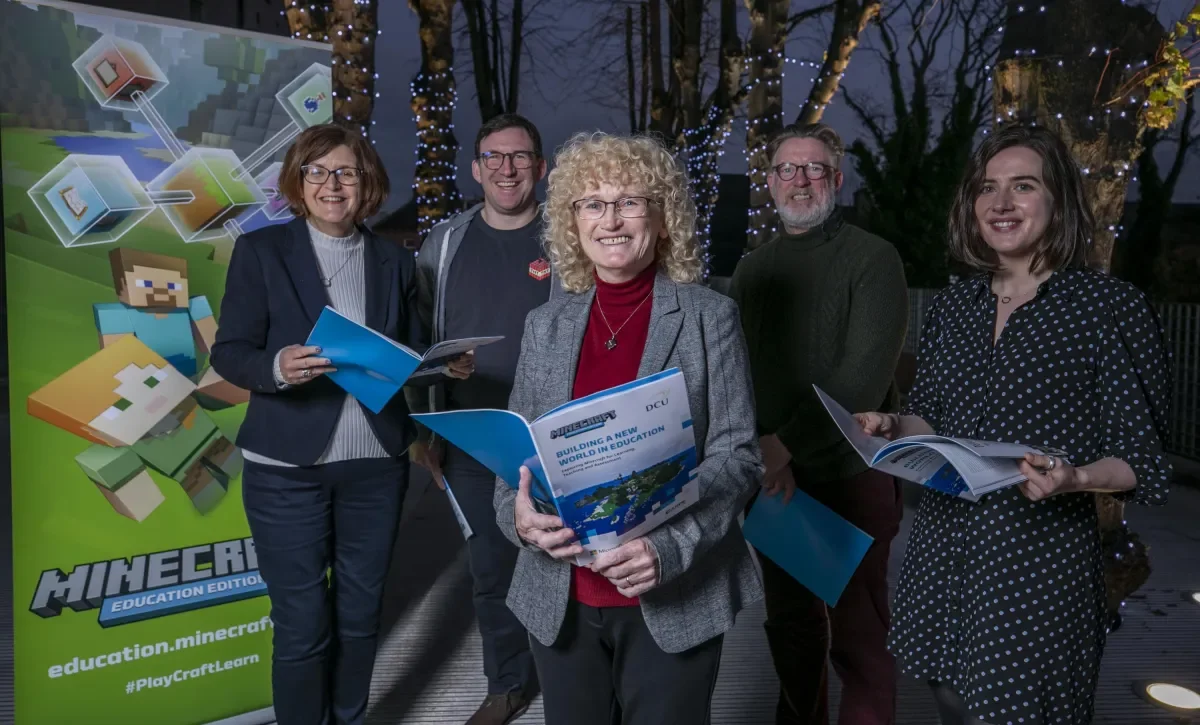

DCU research looks at how students and teachers can benefit from using Minecraft in class
A new report from Dublin City University looks at how teachers and students can benefit from using Minecraft: Education Edition in the classroom. Authors of the report are now calling on primary schools to take part in a further study to examine how best to use it.
The white paper entitled ‘Building a New World in Education: Exploring Minecraft for Learning, Teaching and Assessment’ looks at the use of Minecraft: Education Edition - the educational version of the popular video game Minecraft - as a digital tool for teaching, learning and assessment in schools, and provides recommendations for the future to advance the evidence base.
It finds that the digital tool can support the development of social skills with groups of neurodiverse learners as it adopts a multi-modal approach to social interaction and communication. It can also greatly help young people to develop 21st century skills such as problem solving and collaboration through project-based learning.
Minecraft: Education Edition has also proven to be successful in supporting teachers with assessment as the platform allows teachers to provide both oral and written feedback on a students’ work and learners can chart their progress with pictures, a form of self-assessment.
The Paper is a collaborative project between researchers in the DCU School of STEM Education, Innovation and Global Studies, the Centre for Assessment Research, Policy and Practice in Education (CARPE) and Microsoft Ireland.
The team involved now wish to better understand how this tool can be deployed in Irish primary classrooms as part of the Ireland’s Future is MINE initiative. Ireland’s Future is MINE is a joint initiative between Microsoft Dream Space™ and RTÉjr involving the use of Minecraft: Education Edition as an educational tool to engage school communities across the island of Ireland.
Primary schools across the island of Ireland are now invited to take part in the research and to have their say on how these digital tools can support their teaching, learning and assessment and affect positive change in the Irish education system.
Speaking at the launch, Prof. Deirdre Butler, Professor in Education and Digital Learning in the School of STEM Education, Innovation and Global Studies, DCU Institute of Education said:
“In a world where new technology and innovation is constantly re-shaping the future of work, it is critical that we equip students today with future-ready skills such as collaboration, problem solving, communication and critical thinking. Although this white paper demonstrates that game-based learning is a potentially effective tool to develop these important higher order thinking skills, further research is required to enable educators to realise its full potential to assess student learning and development. This is what our upcoming study will investigate.”
Dr Kevin Marshall, Head of Education, Microsoft Ireland said:
“Microsoft Ireland is delighted to be working in partnership with DCU and CARPE on the current research. The importance of digital technologies will accelerate as we emerge from the pandemic. It is critical that we explore new ways of engaging learners; more importantly, we need to explore new ways of assessing student performance, Game-Based Learning (GBL) provides us with this opportunity.”
To download a copy of the White Paper ‘Building a New World in Education: Exploring Minecraft for Learning, Teaching and Assessment’ click here.
For schools interested in taking part in the study, they can register their interest here
